BWW Exclusive: Everything's Up To Date On Broadway: The People Versus Classic Musicals
Bartlett Sher, Daniel Fish, Jennifer Ashley Tepper, and more weigh in on the modern impact of classic musicals.
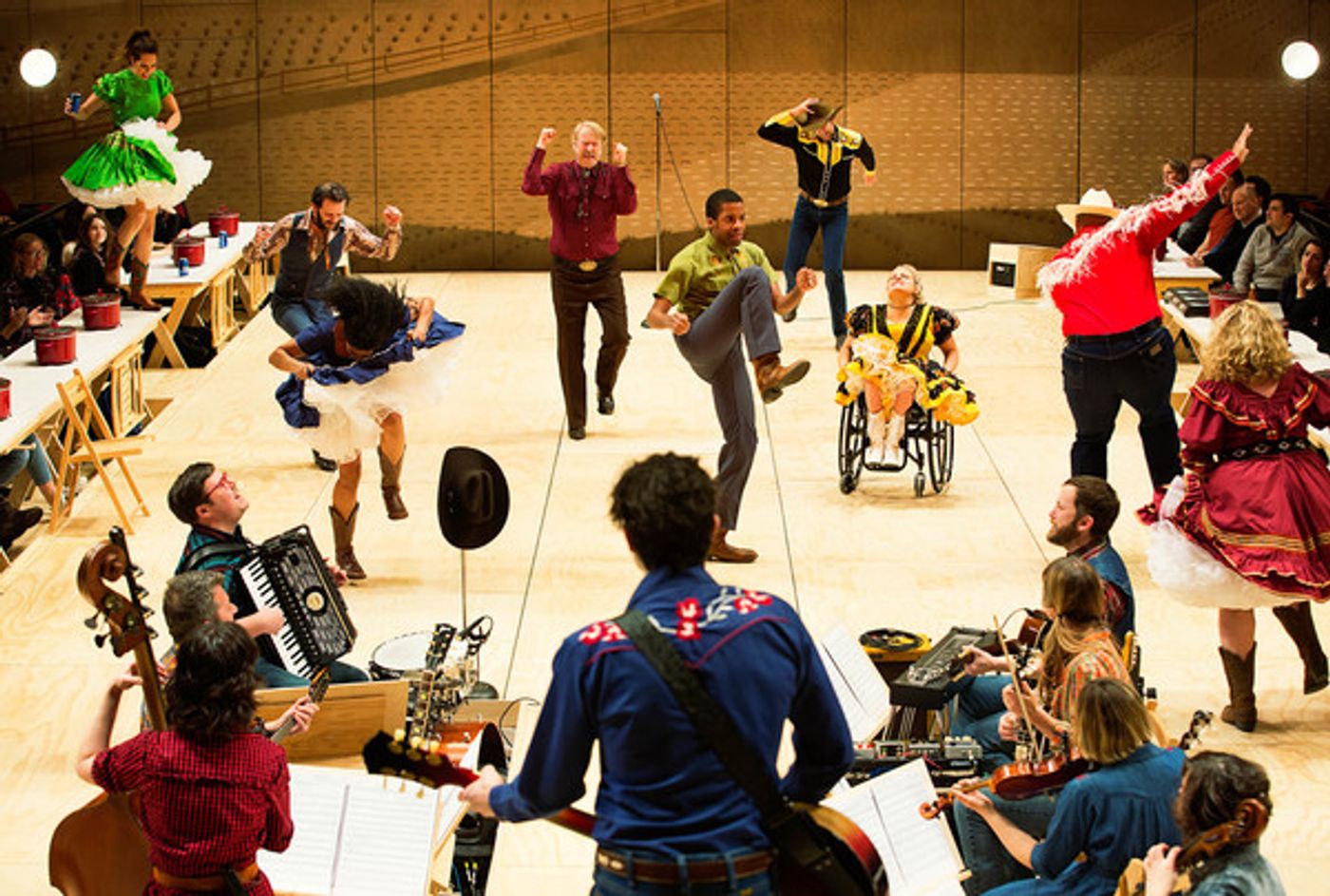 They say you can't know where you're going until you know where you've been. These words seem to ring truer than ever lately, as the push for social progress grows more and more urgent.
They say you can't know where you're going until you know where you've been. These words seem to ring truer than ever lately, as the push for social progress grows more and more urgent.
As we widen our world to build a better future, our past has taken center stage, with much of what once was deemed acceptable now vulnerable to the regulations of modern propriety. Be it outdated tropes, problematic humor, and -isms and -phobias of every ilk, our culture has made a pastime of re-assessing existing works through our modern lens.
This also applies to the world of theatre, where new works have begun to usher in an era of social conscience and a large swath of what once were considered evergreen classics are now subject to intense scrutiny.
The concerning aspect of this isn't the natural changing of the guard and expansion of our artistic borders, but the troubling attitude toward perceived 'outdated' material and a chunk of the Broadway constituency that has begun to question if these shows should continue to thrive on our most visible stages.
So has begun an ancient and adversarial conversation between those that wish to tamp down on the messaging of these pieces and those who remain steadfast in their commitment to freedom of expression.
Within recent seasons classic titles such as "My Fair Lady", "Carousel", "Kiss Me, Kate", and even newer works like "Pretty Woman" have led the public to question if revivals of problematic faves also revive outdated and harmful ideals. Theatre artists have risen to this challenge, setting about the task of preserving these staples, while simultaneously adjusting them for modern sensibilities.
Whether its radical re-envisionings or just plain revisions, within the past decade, Broadway has made numerous attempts to re-think old favorites for the sake of progress. Yet as this conversation blossoms and we continue our trek into the era of the aggressively progressive, the question must also be asked if all of this retrofitting is stunting the emotional capacity of our audiences.
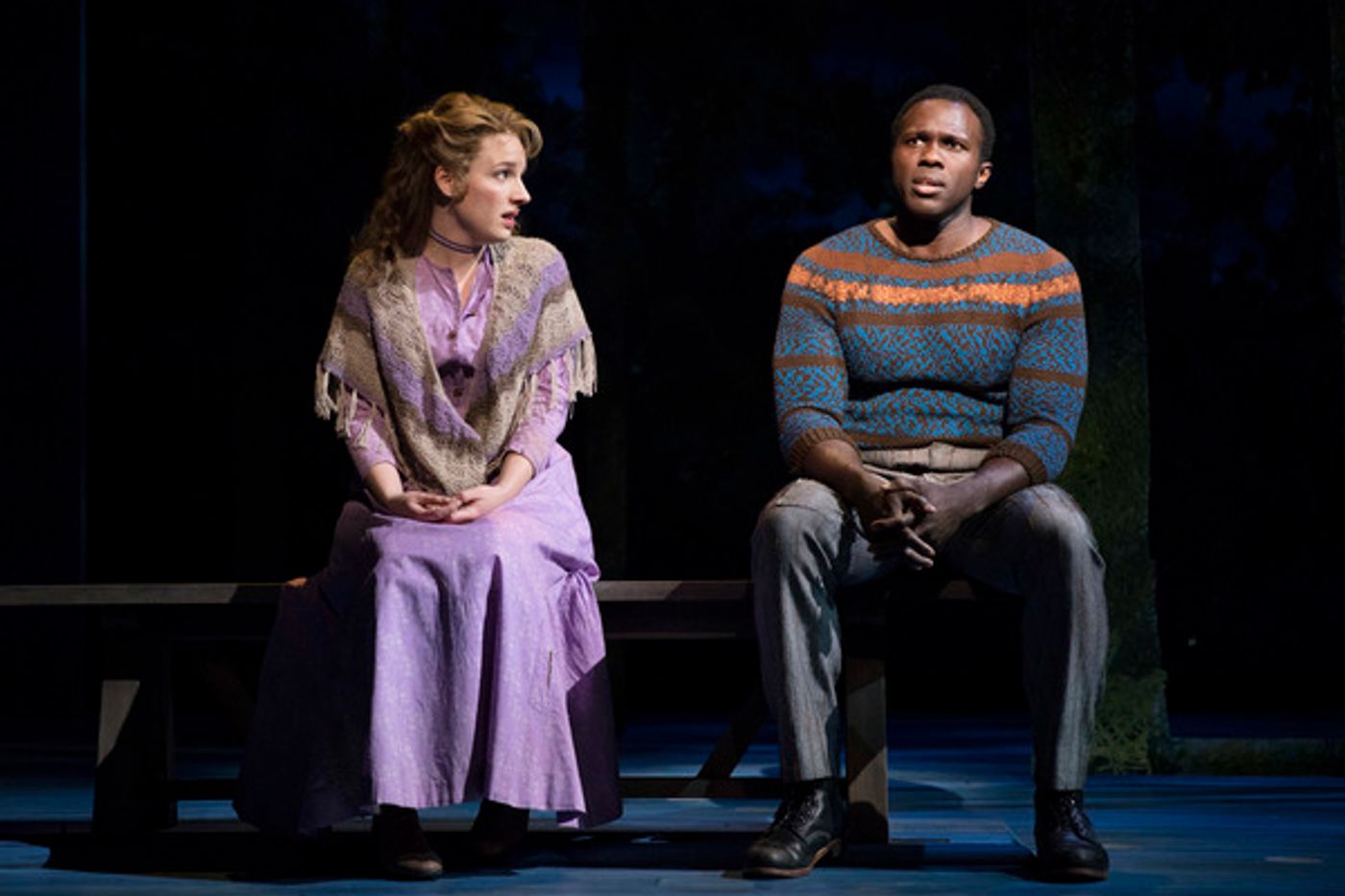
After a swift bout of public head-shaking took hold when Jack O'Brien's recent revival of Carousel was announced, the production took heat from critics for not tailoring the tale to 2019, or at the very least, directing the musical through a more modern lens.
Breanne L. Heldman of Entertainment Weekly wrote of the show, "[Joshua] Henry sounds terrific in every number, especially "Soliloquy," where Billy muses about his unborn child (but you can only really enjoy the performance if you can ignore the problematic nature of most of the lyrics which includes such lines as, "His mother can teach him the way to behave but she won't make a sissy out o' him" and "My little girl is half again as bright as girls are meant to be")."
Sara Holdren of Vulture echoed similar sentiments, writing: "It's a story mired in archaic, cringe-inducing gender dynamics, and despite Rodgers's score - which at times is so gorgeous it raises goosebumps - the unavoidable truth is that the play built around Hammerstein's book and lyrics feels ready either for retirement or radical re-envisioning. The latter, unfortunately, isn't to be found in the current production."
Without the proper context - the sort sadly missing from this most recent outing - it is true that the domestic violence story line in Carousel can read as passive acceptance of abuse. Yet previous productions of the show, such as Nicholas Hytner's lauded 1994 Broadway revival, paint a different picture; one of working class toil, the psychological toll of poverty, and the male burden of providing.
This, of course, is not to explain away Billy Bigelow's indiscretions, but this crucial context offers audiences the opportunity to engage with the characteristics that have always made Carousel so confounding and arresting to witness. Complex characters navigating the messy business of living, with no easy answers in place for the comfort of the audience.
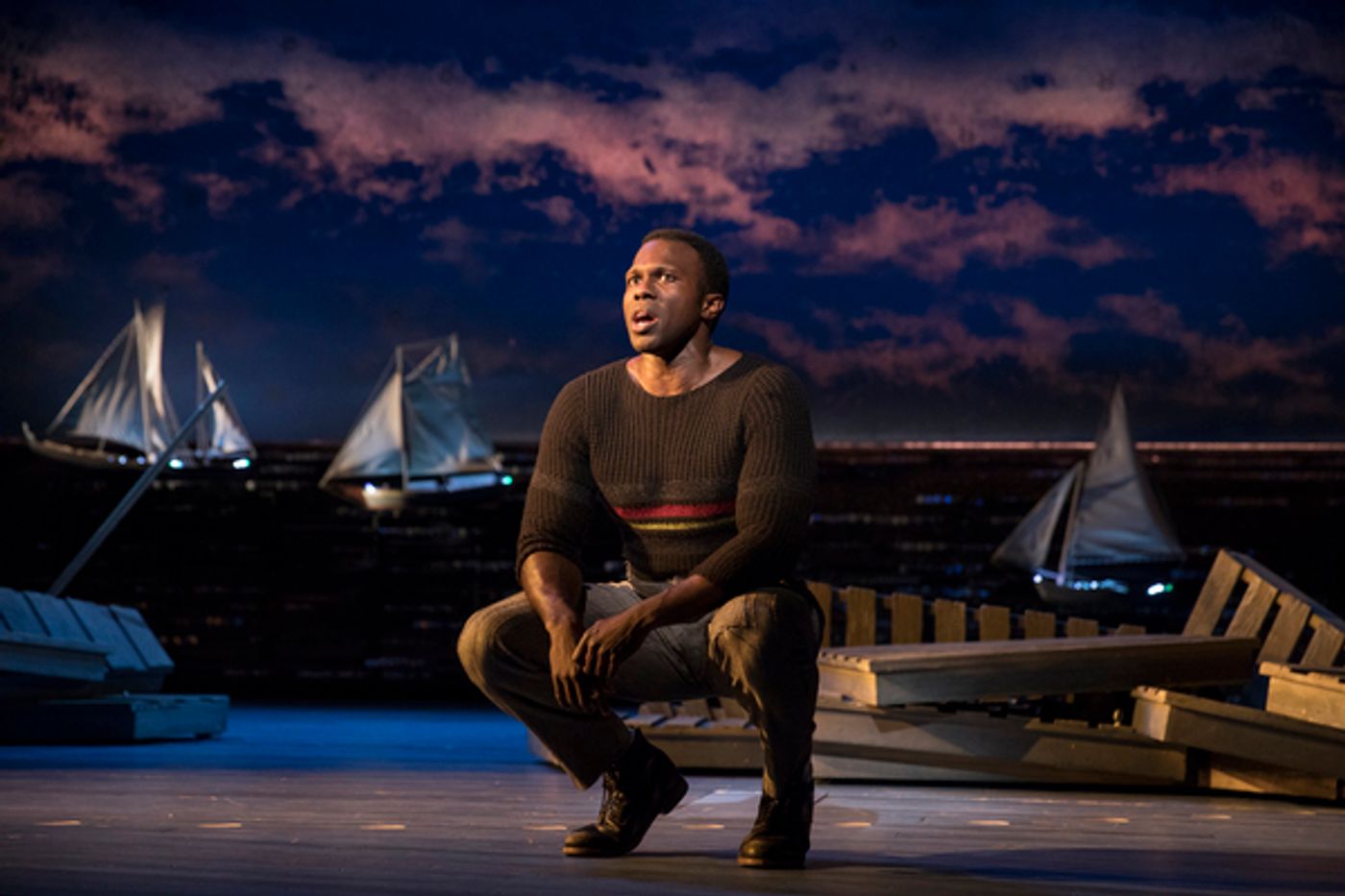 Of Hytner's revival, David Richards of The New York Times wrote, '"What's the Use of Wondr'in'," Julie's attempt to explain the unexplainable bond between them, may be the sweetest surrender to fate ever penned. But then, this is a luminescent musical shot through with pain and bewilderment, an uplifting musical in which the lives of most of the major characters are either miserable or misspent. The paradoxes and contradictions are precisely what keep "Carousel" alive and vital."
Of Hytner's revival, David Richards of The New York Times wrote, '"What's the Use of Wondr'in'," Julie's attempt to explain the unexplainable bond between them, may be the sweetest surrender to fate ever penned. But then, this is a luminescent musical shot through with pain and bewilderment, an uplifting musical in which the lives of most of the major characters are either miserable or misspent. The paradoxes and contradictions are precisely what keep "Carousel" alive and vital."
Still, over the years, what were once considered the strengths of Carousel's story have become a handicap in the eyes of many. Along with a number of other shows, Carousel has become one title where our culture has begun to conflate the challenging with the offensive.
All of these propositions for edits and re-envisionings beg the question of whether or not modern buffers are weakening audience resolve to sit with their own discomfort. In a culture where spoon fed ideals are becoming the norm, are we losing trust in our audiences to draw the right conclusions on their own?
Director of the Tony Award-winning revival of Oklahoma! Daniel Fish has taken note of this phenomena, and has found himself at times pushing back against an instinct to coddle.
"I sometimes think we don't have enough faith in the audience for their ability to bear witness to material that's uncomfortable or confusing. I think there tends to be a fear of upsetting them or challenging them."
He continues, "There's a moment in Oklahoma! where Curly says, "Quit yer worryin' or I'll spank ya." And at one point, when we were working on the production, we did not have that line. And I thought, 'It's there. Let's just put it there and let everybody deal with that.' And I hope that's what this production is doing, that it's not apologizing for what's in the work."

Through careful exploration of the text, Fish balances what has long been misidentified as Rodgers and Hammerstein's sunniest and most idyllic tuner, revealing a dark and complex underbelly. Beneath all of the grinning jingoism that has buoyed the show's popularity over 70+ years, beats the heart of a flawed nation wrestling with its lingering fear of the other to violent ends.
Fish pairs this long overdue textual excavation with a striking visual style that lays the show bare. Posing an uncomfortable challenge to the mythos of American exceptionalism, Fish has taken what has been long misconstrued as a gleaming mirror of our national ideals, and magnified the reflection to reveal deeper truths about our past and present that many would prefer to gloss over.
Though some artists continue the work of challenging their audience, our experiments with revisions continue. This was most visibly evident in the most recent Broadway revival of KIss Me, Kate, which employed book writer, Amanda Green, to update and soften some of the musical's sexist overtones.
While the changes to the show were ultimately reverent and minimal, and the revival well-received, this inclination toward revising an author's work should raise at least some questions.
Outside of the realm of legality, what, if any, are the ethical implications of altering a writer's work? Should such revisions be the new norm or is it the start of a slippery slope in which any work deemed offensive or outdated can be changed at will? If so, what are the long-term canonical effects of such an undertaking?
Theatre historian and producer, Jennifer Ashley Tepper, weighed in on the subject: "In general, I think the main challenge is this: how to present a truthful view of what 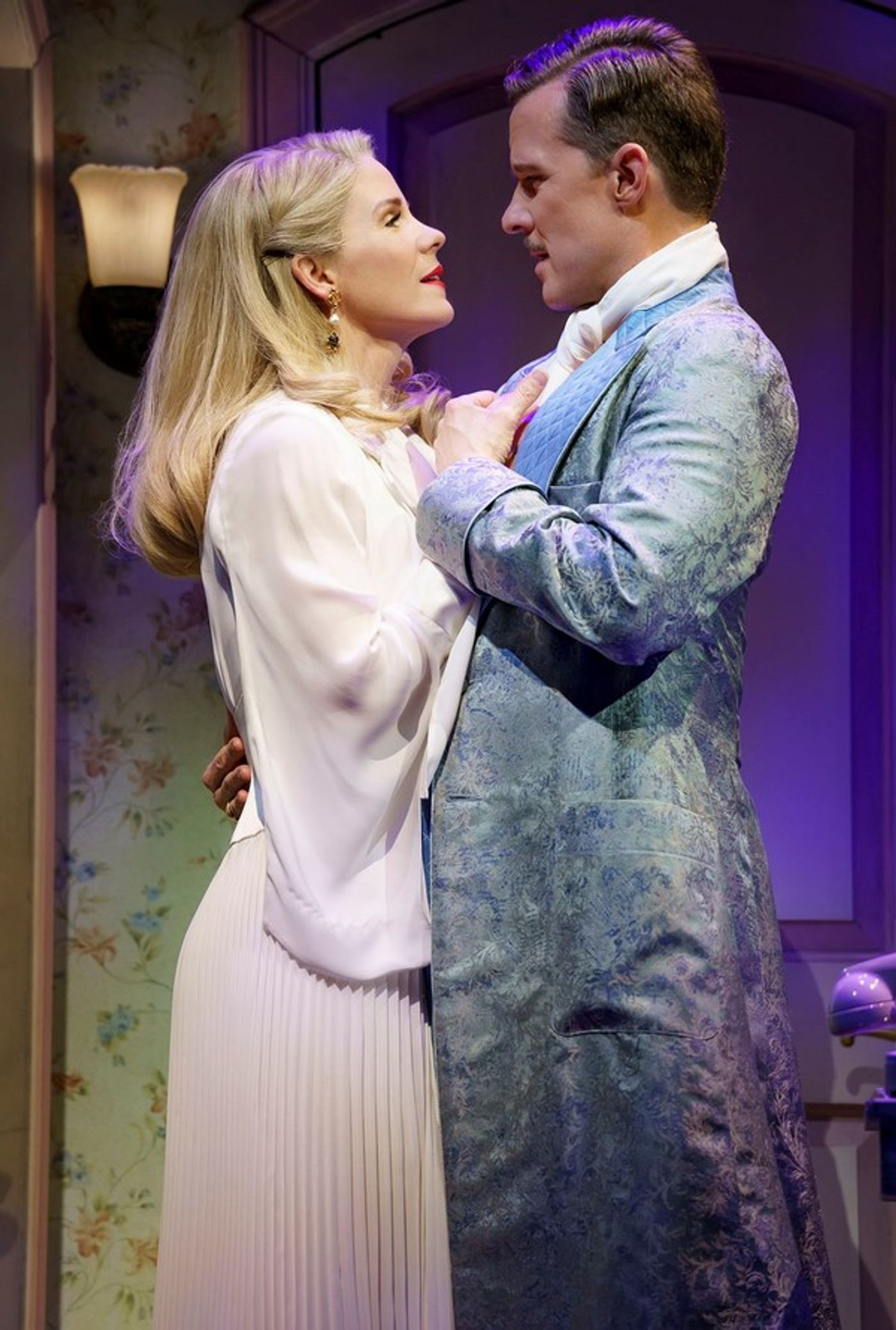 the past was like, and stay true to the story that the creators intended, while also giving a current audience a story and characters it can engage with. I think every revision and every edit has a complicated set of ethics attached, and the correct choices have to be determined by each writer or their estate along with any new production staff."
the past was like, and stay true to the story that the creators intended, while also giving a current audience a story and characters it can engage with. I think every revision and every edit has a complicated set of ethics attached, and the correct choices have to be determined by each writer or their estate along with any new production staff."
She continues, "I am generally all for letting audiences see stories and characters as they were, and I think this often shines a light on topics in a helpful way. But in one case it may be better to know how women were treated in a 1960s musical and in another case it may be more helpful to adjust some dialogue so that the intentions of the show remain the same but modern audiences are able to identify with a certain character. In many cases, shows have found longer lives and new audiences because of carefully revised versions that allow them to meet their full potential."
Ted Chapin, Chief Creative Officer of the Rodgers and Hammerstein organization was able to shed light on the process of revisions, and the careful vetting process through which such rewrites are considered,
"We are always open to a conversation. I would always recommend a conversation before a change is made - first, performance contracts say you can't make changes, and doing so without authority carries risks with it." he continues, "Over my career at R&H we have agreed to some changes that were asked for with great passion, but which ended up being wrong-minded. When changes feel 'modern' and reveal aspects of a show that hadn't been realized before (as seen in several recent productions of Oklahoma!) well, that's what makes good theatre."
Outside of artistic intention, rewrites can prove useful in other ways. A happy byproduct of shaving down Kiss Me, Kate's problematic sexism was the revelation of a hidden history of the show, one in which male collaborators edited out the contributions of female co-writer, Bella Spewack. Through these careful updates, Ms. Green was able to restore Spewack's original intention of painting a more progressive portrait of the show's leading lady.
If rewrites are not in order, however, interpretation remains the key to whether a revival will fly or falter in any climate, and no one understands that delicate balance better than Tony Award-winning director, Bartlett Sher..jpg?format=auto&width=1400)
Known for his sleek and subtle productions of classic musicals, including Tony-winning revivals of South Pacific and The King & I, Sher has been lauded for his deep dives into the material of these shows, mining modern themes from the inside out. Through subtle innovation that doesn't trade visual grandeur for dramatic intimacy, Sher has managed to present tricky subject matters with little to no significant alteration.
Sher offered his views on how to navigate these dynamics, saying, "Take My Fair Lady, as soon as you have a much older Higgins and a much younger Eliza, you now have a power dynamic that's messed up. There was never any intention that Higgins was meant to be older than she was. That became a convention of the musical later. As soon as you make them closer in age like we did, then you've already eliminated part of the problem. But you have to do your work to find out what it is that does that," he continues "That's just how the story can operate with other kinds of choices, which recontextualize what's happening."
Of his Tony-winning revival of The King & I, Ben Brantley of the New York Times wrote, "The job of Ms. O'Hara - and that of Mr. Sher and Ken Watanabe, the commanding Japanese film star who portrays the King of Siam - is to educate 21st-century audiences in the enduring and affecting power of a colonialist-minded musical that, by rights, should probably embarrass us in the age of political correctness."
As his multiple acclaimed productions of these works have shown us, Sher woos his audience with traditional visuals, while pointedly bringing the intended message home. What should "embarrass us in the age of political correctness" becomes an evening that is equal parts entertaining and thought-provoking without casting aspersions on the work.
-harryhadden-patonandlaurabenanti%2Ccredittojoanmarcus.jpg?format=auto&width=1400)
There is also the less explored component of gender and race at play when it comes to the sorts of works that endure and those that don't. As the scope of stories about and told by women and people of color widen, artists and audiences in those groups are not eager to revisit the historical subjugation so prevalent in earlier works. Yet this line of thinking can lead to further marginalization of already marginalized artists.
Jen Tepper explains, "Often shows that were the most groundbreaking in their time- like Carousel and Kiss Me Kate- are the ones that later audiences will consider the 'most dated'."
She continues, "This is part of the reason we get more revivals of plays written by white men about white men's experiences than we get revivals of plays written by women and people of color about their experiences - being a white man has not changed as much, so those pieces are "not dated". But plays women wrote during the mid-20th century about feminism would be considered offensive to the idea of feminists today, so they are gradually forgotten. The significant amount of Broadway musicals created by black artists in the 1920s and 1930s are never revived" adding, "The shows that are considered "dated" are the ones that actually need to be revived the most- so we can examine where we've been and where we're going. Every time we don't revive something because the ideas presented in it have evolved, we are erasing history in an ultimately unhelpful way to the evolution of those same ideas."
Questions regarding the longevity of a piece of art come down to context over content. So much of what is perceived as outdated can retain its social and political value in the hands of the right artists. In order for that process to succeed, audiences must remain willing to bear witness to what makes them uncomfortable.
"You don't make theatre to create the world you want to see. That's not what theatre is about at all. It is to reflect the difficult and the positive and anything about who we are." Sher says, "Theatre has to be able to include all points of view, difficult or not difficult, and isn't coming to conclusions about the world, but only presenting complex questions and problems that we need to face. And then the audience gets to come to conclusions."
Ms. Tepper offered a similar take, saying, "I don't want a Pal Joey whose misogyny is 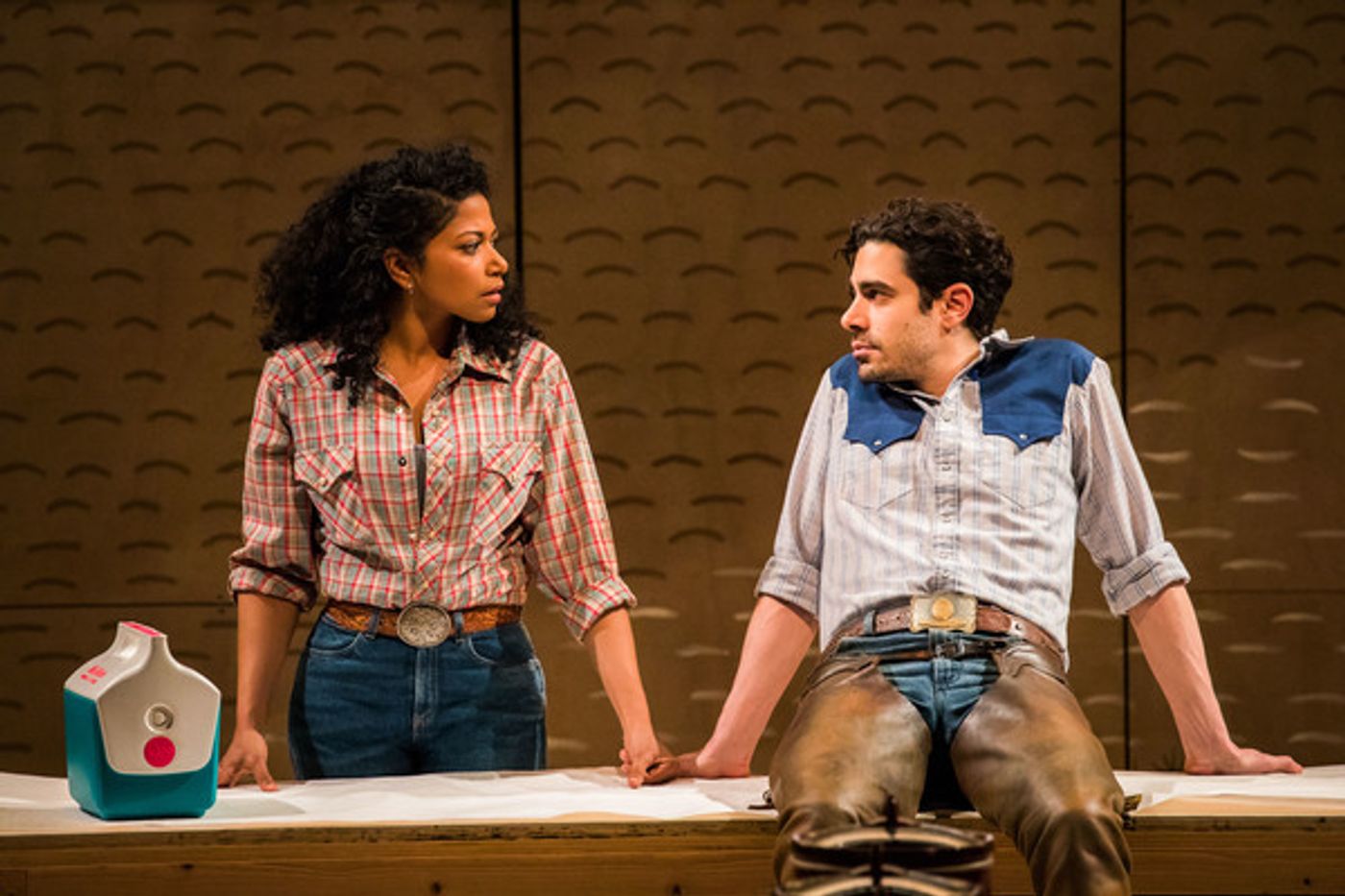 muted or a Show Boat where the racism is adjusted. As long as people were racist, or misogynist, or abusive - and of course they were- I think it serves audiences to see those stories being told." she continues, "It might change the ways we're able to root for certain storylines or characters- or not. Empathy is one of the main goals of the theatre, as is being able to view situations from different angles. If we were just watching stories that were mirrors of ourselves, in this year 2019, perfectly correct from a right-and-wrong angle, we would not be able to examine our own views and prejudices and seek to understand others in the way that theatre is meant to encourage."
muted or a Show Boat where the racism is adjusted. As long as people were racist, or misogynist, or abusive - and of course they were- I think it serves audiences to see those stories being told." she continues, "It might change the ways we're able to root for certain storylines or characters- or not. Empathy is one of the main goals of the theatre, as is being able to view situations from different angles. If we were just watching stories that were mirrors of ourselves, in this year 2019, perfectly correct from a right-and-wrong angle, we would not be able to examine our own views and prejudices and seek to understand others in the way that theatre is meant to encourage."
Daniel Fish offered a cautiously optimistic take, saying, "If you trust your audience and say, 'Here, we made this and we want you to bear witness to it.' I do believe that people have the capacity and even the desire to do it. But I think it's something that in many ways has become increasingly atrophied."
In a moment where #MeToo, police brutality, gun violence, and ongoing human rights atrocities have become part of our daily routine, fear has become a national commodity, History tells us that it is natural for art to bear the brunt of that fear, as it breeds a well-intentioned, yet wrongheaded strain of censorship that attempts to dictate the terms of expression to preserve our safety.
No one entity is to blame for the insanity that surrounds us and the censoring of challenging art will not prevent its proliferation. It can, however, afford us the opportunity to examine the world that shapes these issues and inspire the sorts of changes we wish to see - so long as there are artists willing to explore these stories fully, and audiences willing to take the ride.
Videos

